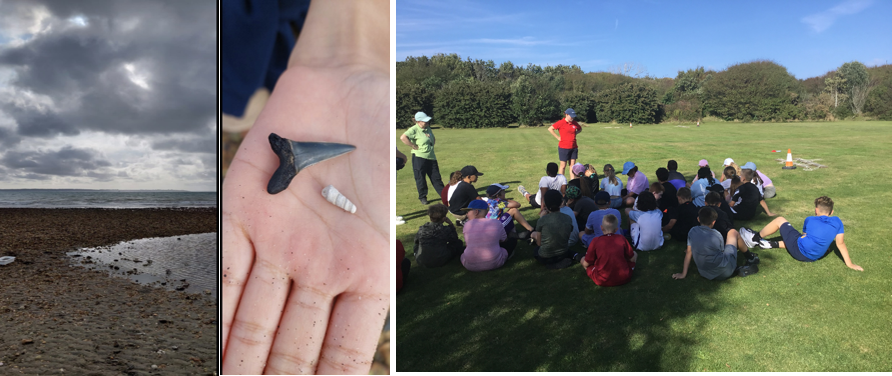Geography
Intent
At Hatfeild Primary school, geography education should be fully inclusive to every child. Our aims are to fulfil the requirements of the National Curriculum for geography; providing a broad, balanced and differentiated curriculum; ensuring the progressive development of geographical concepts, knowledge and skills; and for the children to develop a love for geography. Furthermore, we aim to inspire in pupils a curiosity and fascination about geography that will remain with them for the rest of their lives.
As geographers, this curriculum provides them with essential component knowledge and new vocabulary. As pupils progress through the school, they will develop an insight into the links between physical and human processes and how landscapes and environments have changed and continue to change over time. It is important that pupils feel curious about the world and develop an understanding of how things form and make meaningful links to how it came to be as it is today. Through ‘Big Ideas’ such as: ‘The Scale of the World’ and ‘Sustainability and the Environment’, children will learn their role as global citizens and their place within the world.
A high-quality geography education will aim to develop an awareness of the diverse nature of the UK and global populations and the contributions different societies, communities and individuals have made to human understanding. (The 2014 Primary National Curriculum in England). To ensure that pupils develop a secure knowledge that they can build on, our geography curriculum is organised into a progression model that outlines the skills, knowledge and vocabulary to be taught in a sequentially coherent way. We want children to enjoy and love learning about geography by gaining this knowledge and skills, not just through experiences in the classroom, but also with the use of fieldwork and educational visits. It is vital that all geography teaching and learning is purposeful and equip pupils with the correct knowledge and the necessary depth of knowledge to become skilful and informed geographers.

Implementation
At Hatfeild, we begin each topic with a learning challenge question, designed to promote curiosity. Geography topics form key drivers within our thematic curriculum. Children will spend half a term focusing on a geography topic in order to gain a deep and broad understanding. Within lessons, children have the opportunity to ask and answer questions about the human and natural world. They develop their knowledge of places and environments throughout the world, an understanding of maps, and a range of investigative and problem-solving skills, drawing on resources within the local area. Pupils have opportunities to learn about and discuss current climate issues and develop their understanding of living sustainably, helping them to become responsible global citizens. Through field work and opportunities to learn within the outdoors, children develop an appreciation of the natural world.
Each topic is centred around ‘Big Questions’, which are used to assess children’s knowledge. Through our geography curriculum, children have opportunities to investigate and interpret a range of geographical locations in Britain and across the wider world. We encourage children to become geographers through collecting, analysing and communicating through discussion our findings. Where possible, we ensure cross curricular links with maths and literacy. Geography provides excellent opportunities to support all learning abilities through investigations, outdoor learning and analysing data. We are incredibly fortunate to have a vast amount of outdoor space, including woodlands to allow children to be ‘hands on’ with the environment.
All learning will start by revisiting prior knowledge. This will be scaffolded to support children to recall previous learning and make connections. Staff will model explicitly the subject-specific vocabulary, knowledge and skills relevant to the learning to allow them to integrate new knowledge into larger concepts.

Impact
Outcomes in topic and literacy books, evidence a broad and balanced history curriculum and demonstrate the children’s acquisition of identified key knowledge. Pupils’ work shows that geography is taught at an age appropriate standard across each year group with opportunities planned for pupils working at greater depth. Children review their successes in achieving the lesson objectives at the end of every session and are actively encouraged to identify their own target areas, with these being identified, shared and verified by teachers as necessary. By introducing children to conceptual themes such as the ‘Big Ideas’, we are able to assess children’s understanding of geography. It also helps us identify areas in which we need to encourage deeper learning.
Knowledge and skills will have developed progressively to not only enable learners to meet the requirements of the National Curriculum but to prepare pupils to become competent geographers in secondary education. Pupils will have thoroughly enjoyed learning about geography, therefore encouraging them to have a life-long passion for the natural world and an ongoing curiosity about our global climate, and different cultures, environments and societies. They should be able to think critically and communicate confidently both orally and in their writing. Through in depth study of the Big Questions, children should be able to think independently, debate and reflect on their own opinions and the opinions of others.
In order to ensure our aims and intent have been met, we scrutinise what children have learnt through:
-
Assessing children’s knowledge of key component learning as set out within schemes of work.
-
Assessing the quality of children’s explanation of ‘Big Ideas’ themes.
-
Assessing children’s understanding of topic linked vocabulary.
-
Interviewing the pupils about their learning (pupil voice conversations).
-
Moderation and scrutiny of pupil’s books and professional dialogue between teachers to assess the quality of children’s learning.
-
Sharing good practice in staff meetings.
-
Marking of written work in books against the school’s marking policy
